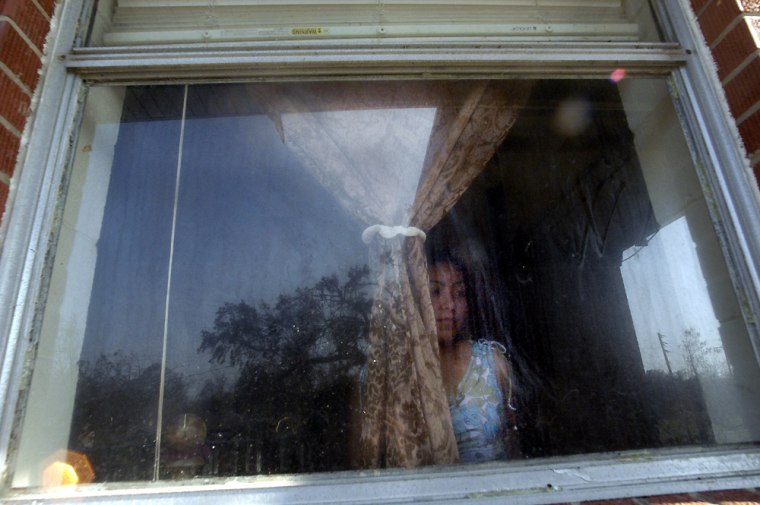Juan Herrera’s house on the Gulf coast is destroyed. He has no money, little clothing and is living with his family in a high school gym. But what he needed most in Hurricane Katrina’s aftermath, he said, was a job.
“I have to make money. I have nothing,” he said.
Thousands of evacuees from ravaged coastal areas began scraping for work in the cities and towns where they found themselves stranded after the storm. Many launched their search with skills of limited immediate value and no transportation, but with a desperate need to put enough dollars in their pockets to get moving again.
Some cold-called businesses asking about jobs. Some tried temp agencies in areas where the power and phones were back on.
Herrera bumped into an employment agent who visited the shelter in Richland looking for laborers for a business that makes dry ice.
The job was only for a few days and would require him to work overnight, but Herrera took it, along with an offer of a nightly ride to work.
“What else can I do?” he asked, adding that he hoped to eventually return to his old job at a Chevron facility in Pascagoula.
Other evacuees are looking for a longer-term solution.
Tina Davis, of New Orleans, took one look at video of the disaster back home, and came to two quick conclusions: Her house was almost certainly destroyed, and it was time to get to work building a new life someplace else.
“If we can find work in Jackson, we’re staying. What’s there to go back to?” she asked. “My fiance is an executive chef. I’m sure there are plenty of places that would love to have him.”
For many job seekers, though, the search is unlikely to be easy.
Hundreds of thousands of people were thrown out of work by the storm. Many are still in areas without power or gasoline and state labor agencies are crippled.
Liz Barnett, a spokeswoman for the Mississippi Department of Employment Security, said officials hope to have toll-free telephone numbers available shortly for job seekers needing assistance.
A few employers reached out Friday with offers of work.
A fast food restaurant hung fliers offering jobs at the shelter in Richland. A company in need of laborers to work with steel visited a shelter at the Mississippi Coliseum in Jackson. Craigslist, the Internet-based classified advertising service, was filled with job offers for victims willing to relocate.
Some businesses skipped advertising altogether.
“I was getting ready to put a big ad in the paper, and I said, ’Why would I do that?’ There are tons of people out here looking for work,” said Pene Long, who was hoping to hire between 10 and 15 beauty stylists at her spa in Richland.
The U.S. Department of Labor announced it would provide $50 million to Mississippi, $62 million to Louisiana and $4 million to Alabama to hire displaced people to help with storm clean up.
That may not be enough.
“There are a lot more people looking than there are jobs,” said Dianne Adcock, co-owner of an employment agency in Flowood, Miss. “I just can’t see there being enough for everyone.”
